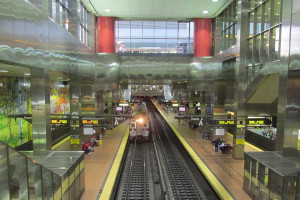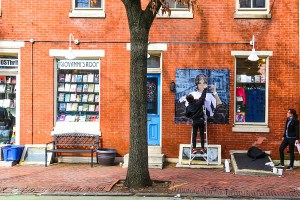The New Pope Is Old. He Better Make Every Second Count.
Who says the Catholic Church can’t change? By electing Jorge Bergoglio of Argentina, the conclave of Cardinals just made history. The list of “firsts” is impressive:
• First Pope from the Americas
• First non-European in 1,200 years
• First Latin American pontiff
• First to take the name Francis
• Most amazing, he’s the first non-Catholic pope. He’s a Jesuit.
Jokes aside, the selection of Bergoglio is an interesting choice. His accomplishments are significant, from modernizing the Argentinian Church to having the guts to clash with President Cristina Fernandez on important issues. Infinitely more attractive to the world’s 1.2 billion Catholics, though, is how he conducts his daily life.
Until his election as pontiff, he cooked his own meals. He lived in a one-room apartment. More often than not, he walked or took public transportation.
Upon becoming Pope, Bergoglio didn’t don the typical red papal mozzetta vestments, but a plain white robe. He wasn’t laden with gold and jewels, but adorned with a simple wooden cross. He asked the throngs in St. Peter’s Square to pray for him. Rather than preaching in liturgical platitudes, he actually spoke to the flock. He eschewed the special chair on a raised platform, choosing to greet each Cardinal on the same level, showing he was still one of them. Forsaking the Pope Car, he rode to the hotel on the bus with all the Cardinals, later invoking laughter as he toasted them: “May God forgive you!”
And upon checkout, he paid the hotel bill himself and carried his own luggage.
****
While praying one day, St. Francis heard Christ speak to him: “Francis, repair my Church.”
In that regard, Pope Francis has his work cut out for him. As one of “God’s Marines,” as the Jesuits are known, he will have to fight every day to repair a fractured Church. Modernize without compromise, apologize and sanitize, and organize and proselytize.
A herculean task, and one compounded by his age. He is 76. Put another way, he is 24 years short of the century mark.
Is such a consideration discriminatory? Ageist? Unfair? Absolutely. But also true. Like it or not, age and appearance matter.
Maybe 76 is the new 56. Maybe Pope Francis will be photographed fist-bumping a 10-year-old. Maybe his charisma knows no bounds, allowing him to resonate with all generations, reinvigorating the faithful and inspiring the departed to return.
But it will take an extraordinary amount of energy and strength, attributes which clearly had left Pope Benedict. Will Pope Francis have the necessary stamina, and if so, for how long? Time will tell.
And let’s be clear about something. For this pope to be effective, he must be a globetrotter, racking up huge miles. And yes, that means regularly visiting that not-so-obscure country accounting for not just millions of Catholics and billions for Church coffers, but one that also happens to be the leader of the world. It’s called the United States, and papal visits every decade don’t, and won’t, cut it. Benedict’s first—and last—visit was in 2008, three years after becoming Pope. Because of his frailty, more numerous trips didn’t occur, and that perfectly illustrates why age matters.
Those who criticize the questioning of age are not dealing with reality. Age was a major issue with numerous presidential candidates, not just from a health standpoint, but also relatability. John McCain and Bob Dole both lost to younger, more charismatic opponents. And an old-looking, frail FDR could never have been elected in the age of television because he was wheelchair-bound, weakened by polio.
However, if anyone proved that age could be overcome, it was Ronald Reagan. Despite being on death’s door after the assassination attempt, the nation’s oldest elected president nonetheless traveled the world, rebuilt a battered economy, and defeated communism, in the process freeing more people than any other person in history.
But Francis begins his papacy only one year younger than when Reagan left office. Age will become a factor, and we may be choosing another pope within a decade. Is this the new precedent? Is it a calculated move to ensure that massive media coverage of the Church continues? Is choosing a new leader every few years necessary to adapt with the times, hoping a fresh perspective will keep Catholics interested? Or will such a practice lead to a “been there, done that” tedium? Too soon to tell.
One thing is certain. Pope Francis can either be a great communicator by preaching worldwide, or he can stay in the Vatican and clean house, cutting its massive bureaucracy and reforming the Church from within. But he can’t do both.
Here’s hoping he appoints some kick-ass, take-no-prisoners lieutenants to do the latter, and resurrects the global force for good the Church was, prior to the scandals. And since he is 76, there’s no better time than the present.
****
I am lucky enough to have stayed in Assisi, Italy. In between imbibing Umbrian wine with the locals, I traced the footsteps of Francis: where he performed his deeds, where he lived and often went hungry in the caves above town, and where he lies buried under the Basilica. It was impossible not to become immersed in his almost-too-amazing-to-be-true life.
Given that Jorge Bergoglio chose to emulate such a model human, the Cardinals may have, in fact, chosen wisely.
And since the rain that had been pouring on St. Peter’s Square just happened to stop the moment before Pope Francis was announced to the world, it seems The Big Guy agrees.


